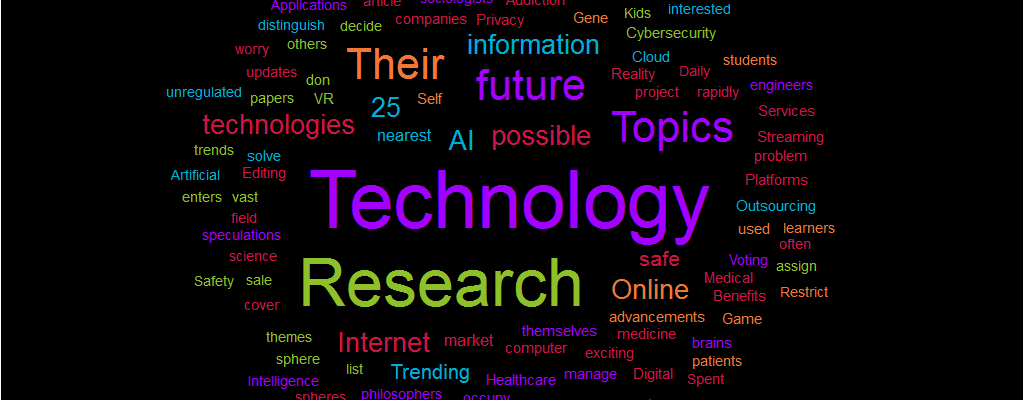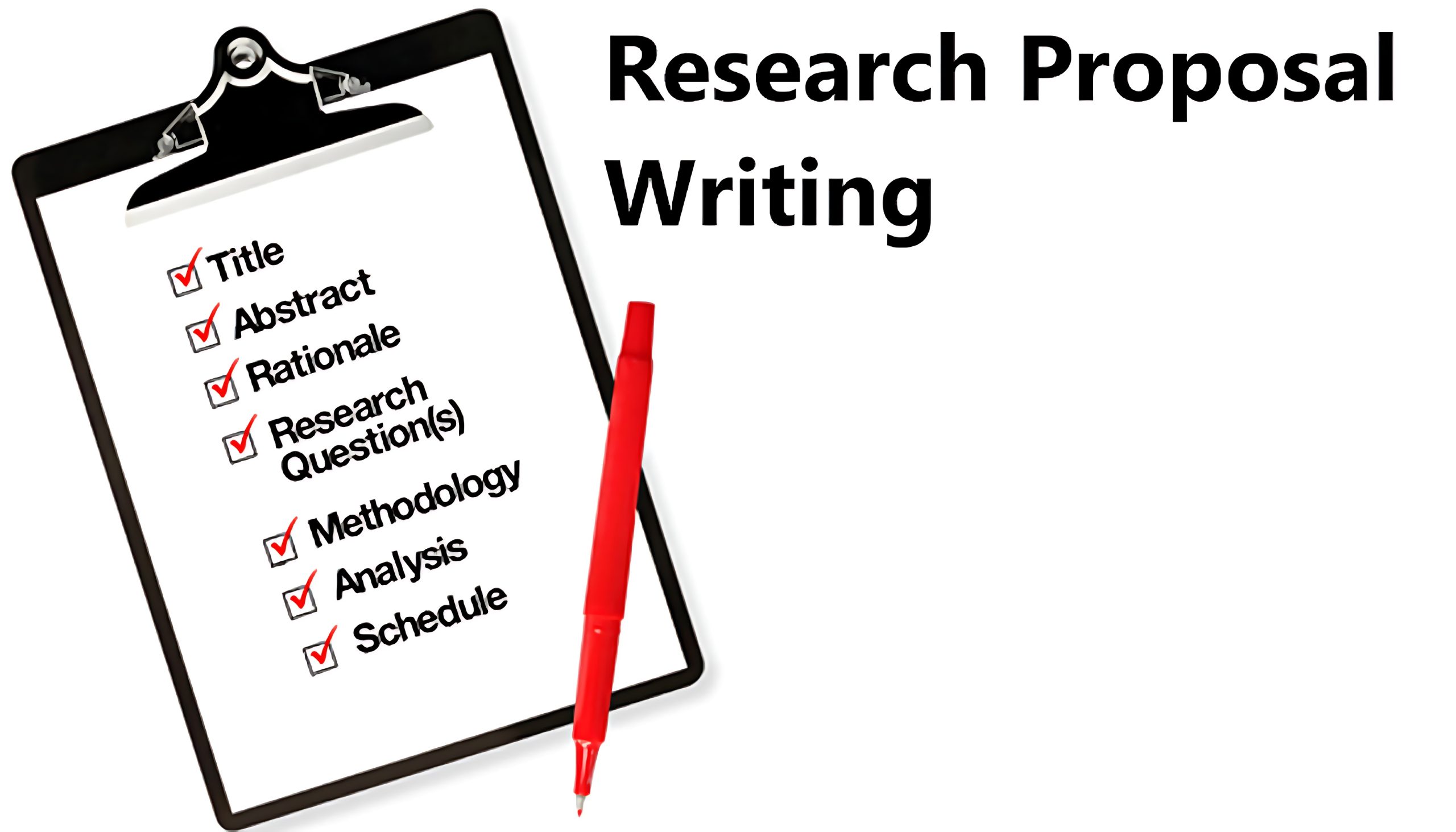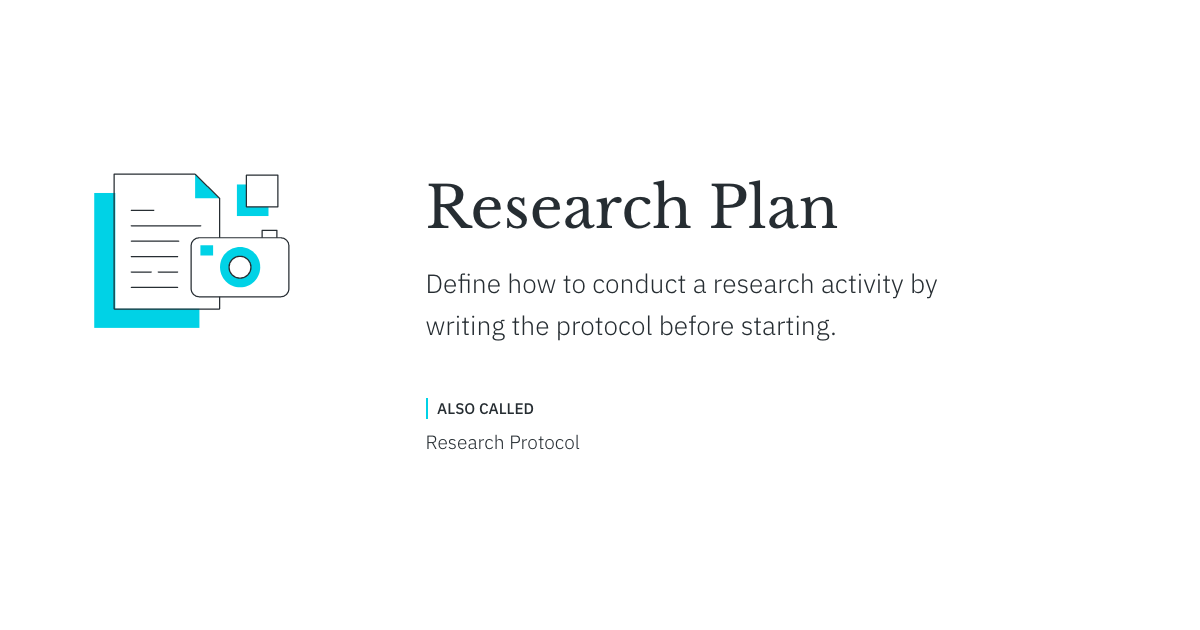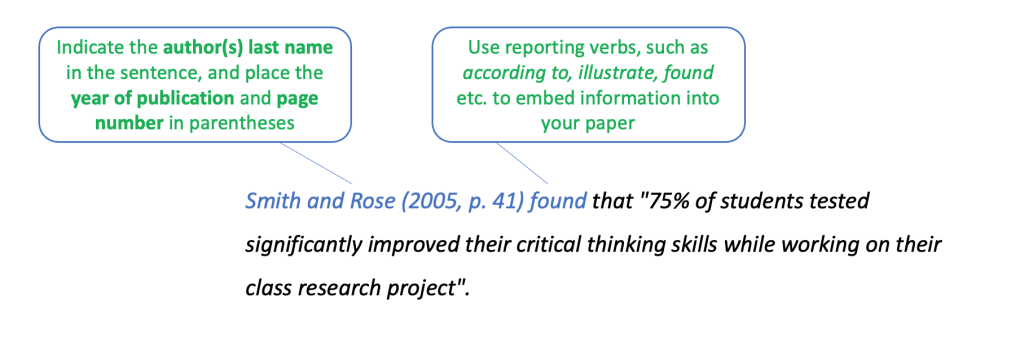How To Write A Technology Research Paper
Writing a technology research papercan be a daunting task, but with the right guidance and structure, you can produce a compelling and well-researched paper that contributes valuable insights to the field. Whether you are a student, an academic, or a professional, this guide will walk you through the essential steps to create an impactful technology research paper.
Selecting A Unique And Engaging Technology Research Topic
Choosing the right topic for your technology research paper is a critical first step in ensuring the success of your project. In today's fast-paced world, technology is at the forefront of innovation and change, offering a vast landscape of possibilities for research. Here are some important considerations to help you select a unique and interesting topic:
Stay Updated With Technological Advancements
Technology is a dynamic field, constantly evolving and introducing new concepts, tools, and trends. To find an engaging topic, stay updated with the latest advancements in technology. Follow tech news, read academic journals, and attend conferences to discover emerging areas of interest.
Leverage Your Existing Knowledge And Interests
Choose a topic that aligns with your existing knowledge and interests. If you already have a background in a particular technology or are passionate about a specific aspect of it, you'll have a head start in your research. Your enthusiasm will drive your motivation to explore the topic deeply.
Identify Gaps And Challenges
Consider the challenges and gaps in current technology. These gaps often present excellent research opportunities. Ask yourself questions like: What problems are yet to be solved? Are there emerging technologies with unexplored implications? Identifying such gaps can lead you to a unique and valuable research question.
Balance Uniqueness With Available Data
While uniqueness is desirable, ensure that there is enough data and information available on your chosen topic. Conduct preliminary research to assess the availability of relevant sources, databases, and literature. Having access to credible and diverse sources is crucial for a well-supported research paper.
Define Your Research Goals
Clearly define your research goals and objectives. What do you want to achieve with your research paper? Are you aiming to propose a solution to a specific problem, analyze trends, or provide a comprehensive overview of a technology-related issue? Having a clear purpose will guide your topic selection.
Consider The Scope Of Your Research
Be mindful of the scope of your research paper. Ensure that your chosen topic is neither too broad nor too narrow.
A topic that is too broad may lack depth, while one that is too narrow might limit your access to relevant data. Strike a balance that allows for in-depth exploration within the constraints of your research.
Consult With Advisors And Peers
Don't hesitate to seek guidance from your academic advisors, mentors, or peers. They can provide valuable insights and help you refine your research topic. Their experience can also help you assess the feasibility and relevance of your chosen topic.
Explore Interdisciplinary Approaches
Technology often intersects with other fields, such as sociology, ethics, economics, or environmental science. Consider exploring interdisciplinary approaches to your chosen topic, which can provide a broader perspective and enhance the uniqueness of your research.
Test Your Topic With A Research Proposal
Before committing to a topic, consider creating a research proposal. This document outlines your research question, objectives, methodology, and expected outcomes. Reviewing a research proposal can help you refine your topic and ensure it aligns with your research goals.
Conduct A Thorough Literature Review
Conducting a thorough literature review is a foundational step in the research process that deserves closer attention. Here's why it's so essential and how to go about it effectively:
Why Conduct A Literature Review?
- Understanding Existing Knowledge: A comprehensive literature review helps you grasp the current state of knowledge in your chosen field of technology. It provides insights into what has been studied, discovered, and debated by researchers, offering valuable context for your own work.
- Identifying Research Gaps: By examining existing literature, you can identify gaps or areas where further investigation is needed. These gaps can serve as the basis for your research question and the rationale for your study.
- Refining Your Research Focus: Through the literature review, you can refine your research focus. You may discover that your initial ideas need adjustment or clarification based on what others have explored and found.
- Avoiding Duplication: A thorough review ensures that you don't duplicate existing research. It's important to contribute something new to the field, and a literature review helps you confirm that your research question hasn't already been answered.
How To Conduct An Effective Literature Review
- Select Relevant Sources: Utilize a wide range of sources, including academic databases, peer-reviewed journals, books, conference papers, and credible online publications. Ensure that the sources are recent, as technology evolves rapidly.
- Use Keywords and Search Terms: Craft a list of relevant keywords and search terms related to your research topic. Use these terms when searching for literature to refine your results and find the most pertinent articles and papers.
- Organize Your Findings: As you collect articles and papers, organize them systematically. Create an annotated bibliography or a reference management system (e.g., EndNote, Zotero) to keep track of your sources and key findings.
- Synthesize and Analyze: Don't just summarize the articles you find; analyze them critically. Identify common themes, conflicting viewpoints, and gaps in the literature. Note the methodologies used in previous studies and their strengths and weaknesses.
- Cite and Reference Properly: Keep meticulous records of your sources and cite them correctly in your literature review. Follow the citation style recommended by your institution or the journal where you intend to publish.
Develop A Clear Research Question
Once you've completed your literature review, it's time to transform your insights into a clear and concise research question. Here's how to go about it:
Characteristics Of A Good Research Question
- Specific: Your research question should be narrowly focused and specific, addressing a particular aspect of your chosen topic.
- Clear and Concise: It should be easily understood and stated in a concise manner. Avoid ambiguity or vague wording.
- Empirical: Your research question should be answerable through empirical research, meaning it can be tested or investigated using data.
- Relevant and Meaningful: Ensure that your question is relevant to the field of technology and has the potential to contribute new knowledge or insights.
- Feasible: Consider the feasibility of your research question. Do you have access to the necessary resources, data, and tools to answer it within your research timeline?
Steps To Formulate A Research Question
- Reflect on Your Literature Review: Use the insights gained from your literature review to identify gaps, controversies, or unexplored areas that could be the basis for your research question.
- State the Question: Write down your research question as a clear and concise sentence. Make sure it is a question that can be investigated, rather than a statement.
- Seek Feedback: Share your research question with peers, advisors, or mentors to get their input and ensure that it meets the criteria of a good research question.
- Refine as Needed: Be open to refining your research question as your research progresses. It's common for the question to evolve as you gain a deeper understanding of the topic.
- Connect to Objectives: Ensure that your research question aligns with your overall research objectives and goals. It should serve as the guiding focus of your study.
Create A Research Plan
With a clear research question in hand, the next step is to create a well-structured research plan. A well-thought-out plan will help you execute your research smoothly and efficiently:
Components Of A Research Plan
- Methodology: Decide on the research methods you will employ. Will your research be qualitative, quantitative, or a combination of both? Describe the specific techniques you will use for data collection and analysis.
- Data Collection: Outline how you will gather the data needed to answer your research question. Specify your data sources, whether they are surveys, experiments, interviews, observations, or existing datasets.
- Research Timeline: Develop a timeline that includes key milestones and deadlines for your research. This timeline will help you stay on track and ensure that you allocate sufficient time to each research phase.
- Resource Allocation: Identify the resources you will need, such as equipment, software, access to databases, and human resources (e.g., research assistants). Ensure that you have access to these resources.
- Ethical Considerations: Address any ethical considerations associated with your research, particularly if it involves human subjects or sensitive data. Ensure that your research complies with ethical guidelines and regulations.
- Budget: If applicable, create a budget that outlines the expenses associated with your research, including data collection, travel, and publication fees.
- Risk Assessment: Identify potential risks and challenges that may arise during your research and develop strategies to mitigate them.
- Literature Review Integration: Integrate your literature review findings into your research plan. Consider how existing research will inform your methodology and data analysis.
- Adaptability: Be prepared to adapt your research plan as needed. Research can be unpredictable, so having contingency plans and flexibility is crucial.
Seek Peer Review
Seeking peer reviewis a crucial step in the research paper writing process that can significantly enhance the quality and credibility of your work. Here's why it's important and how to go about it effectively:
Importance Of Peer Review
- Objective Evaluation: Peers, mentors, or colleagues can provide an objective evaluation of your research paper. They bring fresh perspectives and can identify issues, gaps, or inconsistencies that you may have missed.
- Quality Improvement: Peer review helps improve the overall quality of your paper. Feedback from others can lead to revisions that strengthen your arguments, clarify your writing, and enhance the overall coherence of your research.
- Identification of Blind Spots: Reviewers can point out areas where your assumptions or interpretations may be biased or where your paper lacks objectivity. This helps you address potential blind spots in your research.
- Validation of Findings: Peer review validates the credibility of your research. When experts in the field review and endorse your work, it adds credibility to your findings and conclusions.
How To Seek Peer Review
- Select Reviewers Carefully: Choose peers, mentors, or colleagues who have expertise in the subject matter of your research. Their familiarity with the field will enable them to provide more relevant and valuable feedback.
- Share Your Paper: Provide your research paper to your selected reviewers along with a clear request for feedback. Be specific about what aspects you'd like them to focus on, such as clarity of arguments, methodology, or organization.
- Be Open to Feedback: Embrace constructive criticism and be open to differing opinions. Remember that the goal of peer review is to improve your paper, so don't take feedback personally.
- Engage in Discussions: After receiving feedback, engage in discussions with your reviewers to clarify any points of confusion or seek further insights. This dialogue can lead to a deeper understanding of your research.
- Consider Multiple Reviews: Seek reviews from multiple individuals to gain a range of perspectives. Diverse feedback can help you address a broader spectrum of issues and strengthen your paper.
- Revise Accordingly: Based on the feedback received, revise your research paper. Make necessary changes to improve clarity, coherence, and argumentation. Ensure that your paper aligns with the suggestions and insights provided by your reviewers.
Cite Sources Properly
Proper citation of sources is a fundamental aspect of research paper writing. Here's why it's crucial and how to do it correctly:
Importance Of Proper Citation
- Avoiding Plagiarism: Proper citation is essential to avoid plagiarism, which is a serious academic offense. By acknowledging the original authors of ideas, information, and data, you give them due credit.
- Establishing Credibility: Accurate citation enhances the credibility of your research. It demonstrates that your work is based on a solid foundation of existing knowledge and research in the field.
- Supporting Claims: Citations provide evidence to support your claims and arguments. They show that your assertions are grounded in reputable sources and research.
How To Properly Cite Sources
- Follow a Citation Style: Different academic fields and institutions may require specific citation styles such as APA, MLA, Chicago, or IEEE. Familiarize yourself with the style guide specified by your institution or journal and adhere to it consistently.
- Cite All Relevant Sources: Ensure that you cite all sources you have used in your research, including books, articles, websites, and interviews. Even if you paraphrase information, proper citation is still necessary.
- Use In-Text Citations: In-text citations should be used to credit sources within the body of your paper. Include the author's name, publication year, and page number (if applicable) within parentheses.
- Create a Bibliography or References Page: Compile a list of all the sources cited in your research paper. This should be presented in a bibliography or references page, formatted according to the chosen citation style.
- Check for Accuracy: Ensure that your citations are accurate and complete. Verify author names, publication dates, and page numbers. Any errors in citations can undermine the credibility of your paper.
- Avoid Over-Citation: While it's important to cite sources, avoid over-citation, which can disrupt the flow of your paper. Cite only those sources that directly support your arguments and claims.
Revise And Finalize
The final stages of revising and finalizing your research paper are critical for ensuring that it meets the highest standards of quality and presentation:
Thorough Revisions
- Incorporate Peer Feedback: Integrate the feedback you received during the peer review process into your paper. Address any concerns, clarify ambiguities, and make necessary improvements.
- Review for Clarity and Coherence: Read your paper with a critical eye to ensure that your arguments are clear, logical, and well-structured. Check for transitions between paragraphs and sections to ensure a smooth flow of ideas.
- Grammar and Style: Pay meticulous attention to grammar, punctuation, and style. Eliminate grammatical errors, awkward phrasing, and inconsistencies in style.
- Formatting and Citations: Double-check that your paper adheres to the required formatting guidelines and citation style. Ensure that all citations and references are accurate and properly formatted.
- Proofread Carefully: Conduct a final proofreading to catch any remaining typos or errors. It's advisable to have a fresh pair of eyes review your paper at this stage.
Presentation And Submission
- Formatting: Ensure that your paper is formatted according to the guidelines specified by your institution or the target journal. Pay attention to margins, fonts, spacing, and headings.
- Citation Style: Verify that your in-text citations and references are consistent with the chosen citation style.
- Abstract: Write or revise the abstract to provide a concise summary of your paper, including the problem statement, methodology, key findings, and implications.
- Submission Guidelines: If submitting to a journal or conference, carefully follow their submission guidelines regarding file format, submission process, and any additional requirements.
- Final Review: Before submission, conduct a final review of your entire research paper to ensure that all elements are in place, and there are no overlooked issues.
Editing And Proofreading Tips From Our Writing Experts
Editing and proofreading are vital stages in the writing process that can greatly enhance the quality and professionalism of your technology research paper. Our writing experts offer the following valuable tips to help you refine your paper to perfection:
Review At The Paragraph Level
When you begin the editing process, start by examining your research paper at the paragraph level. Ensure that each paragraph has a clear topic sentence and that the content flows logically from one paragraph to the next. Check for smooth transitions between paragraphs to maintain the coherence of your paper.
Sentence-Level Examination
After addressing paragraph-level issues, shift your focus to individual sentences. Here are some key aspects to consider:
- Clarity: Ensure that each sentence is clear and concise. Avoid overly complex or convoluted sentences that may confuse your readers.
- Grammar and Syntax: Verify that your sentences adhere to proper grammar and syntax rules. Pay attention to subject-verb agreement, sentence structure, and tense consistency.
- Word Choice: Choose words carefully to convey your ideas accurately. Avoid using jargon or technical terms without proper explanation, and opt for precise and descriptive language.
- Sentence Variety: Vary your sentence structure to maintain reader engagement. Alternate between short and long sentences and use different sentence types (declarative, interrogative, imperative) to create rhythm and interest.
- Punctuation: Check your use of punctuation marks, including commas, semicolons, colons, and dashes. Ensure they are used correctly to enhance clarity and readability.
Read Aloud
One effective technique during the editing process is to read your research paper aloud. This auditory approach can help you identify issues that may not be apparent when reading silently. Listen for awkward phrasing, repetitive words, or sentences that sound unnatural. If a sentence sounds "off" to you when read aloud, it likely needs revision.
Style And Consistency
During the proofreading phase, focus on the overall style of your research paper. Ensure that your writing style is consistent throughout the document. Pay attention to the following:
- Formatting: Check that headings, subheadings, and citations are consistently formatted according to the style guide (e.g., APA, MLA) you are following.
- Citations and References: Verify that all in-text citations correspond to the references in your bibliography or works cited page. Ensure accuracy and adherence to the citation style.
- Tone and Voice: Maintain a consistent tone and voice throughout your paper. Avoid shifting between formal and informal language unless it is appropriate for your subject matter.
Proofread For Grammar, Spelling, And Punctuation
Proofreading is the final step in refining your research paper. Focus on the following:
- Grammar: Carefully check for grammatical errors such as subject-verb agreement, verb tense, and sentence fragments. Be vigilant about common grammar pitfalls.
- Spelling: While spellcheckers can be helpful, they are not infallible. Rely on a grammar book and a dictionary to verify correct spelling. Pay special attention to homophones (e.g., "their" vs. "there") that may go unnoticed by spellcheckers.
- Punctuation: Thoroughly review all punctuation marks, including periods, commas, quotation marks, and apostrophes. Ensure they are used correctly to avoid ambiguity.
Avoid Over-Reliance On Automated Tools
While grammar and spelling checkers can be useful, they are not a substitute for careful manual proofreading. Automated tools may miss context-specific errors or provide incorrect suggestions. A human eye is essential for a comprehensive review of your paper.
Seek External Feedback
Consider seeking feedback from peers, mentors, or writing tutors. Fresh perspectives can uncover issues you might have overlooked and provide valuable suggestions for improvement.
People Also Ask
What Are The Topics For Research Paper In Technology?
Topics for research papers in technology can vary widely, covering various aspects of this rapidly evolving field. Some potential technology research paper topics include:
- Artificial Intelligence and Machine Learning: Explore AI applications, ethics, or the impact of machine learning on various industries.
- Cybersecurity: Investigate cybersecurity threats, strategies, and the latest advancements in protecting digital assets.
- Emerging Technologies: Focus on emerging technologies like blockchain, quantum computing, or augmented reality and their potential implications.
- Internet of Things(IoT): Examine IoT applications in healthcare, smart cities, or industrial settings.
- Biotechnology: Research advancements in genetic engineering, biomedicine, or bioinformatics.
- Ethical and Social Implications: Investigate the ethical dilemmas and societal impacts of technological innovations.
- Sustainability and Green Technology: Explore eco-friendly technology solutions, renewable energy, and sustainable practices in tech industries.
- Human-Computer Interaction: Study user experience design, interface design, or accessibility in technology.
- Data Science and Big Data: Analyze data analytics, data privacy, or data-driven decision-making.
- Robotics: Investigate the latest developments in robotics, automation, and their applications.
What Is An Example Of A Technology Research Question?
An example of a technology research question could be:
"How does the integration of artificial intelligence (AI) algorithms into autonomous vehicles impact road safety and traffic management?"
This research question is specific, focused on a technology-related topic (AI in autonomous vehicles), and is capable of being answered through empirical research. It also contributes to the existing knowledge in the field of technology by exploring the implications of AI on a real-world application.
How Do You Start Writing A Research Paper?
Starting a research paper involves several key steps:
- Choose a Research Topic: Select a relevant and engaging topic that aligns with your interests and objectives.
- Conduct a Literature Review: Review existing literature to understand the current state of knowledge and identify research gaps.
- Formulate a Research Question: Based on your literature review, formulate a clear and concise research question.
- Create a Research Plan: Develop a plan outlining your research methodology, data collection techniques, and timeline.
- Collect and Analyze Data: Execute your research plan by collecting and analyzing data relevant to your question.
- Organize Your Paper: Structure your paper with sections such as an abstract, introduction, literature review, methodology, results, discussion, conclusion, and references.
- Seek Peer Review: Before submission, seek feedback from peers, mentors, or colleagues to refine your work.
- Cite Sources Properly: Ensure proper citation of all sources used in your paper to avoid plagiarism.
- Revise and Finalize: Revise your paper based on feedback, paying attention to grammar, style, and presentation.
- Proofread: Conduct a final proofreading to catch any remaining errors.
- Submit for Publication: If applicable, follow the submission guidelines of your target journal or conference and submit your paper.
For more detailed guidance on writing a research paper, you can refer to the source here.
Conclusion
Writing a technology research paper is a systematic process that requires careful planning, research, and attention to detail. By following these steps and guidelines, you can create a research paper that not only contributes to the field of technology but also communicates your findings effectively to your intended audience. Remember that research is an ongoing process, and your work can pave the way for future advancements in technology.




